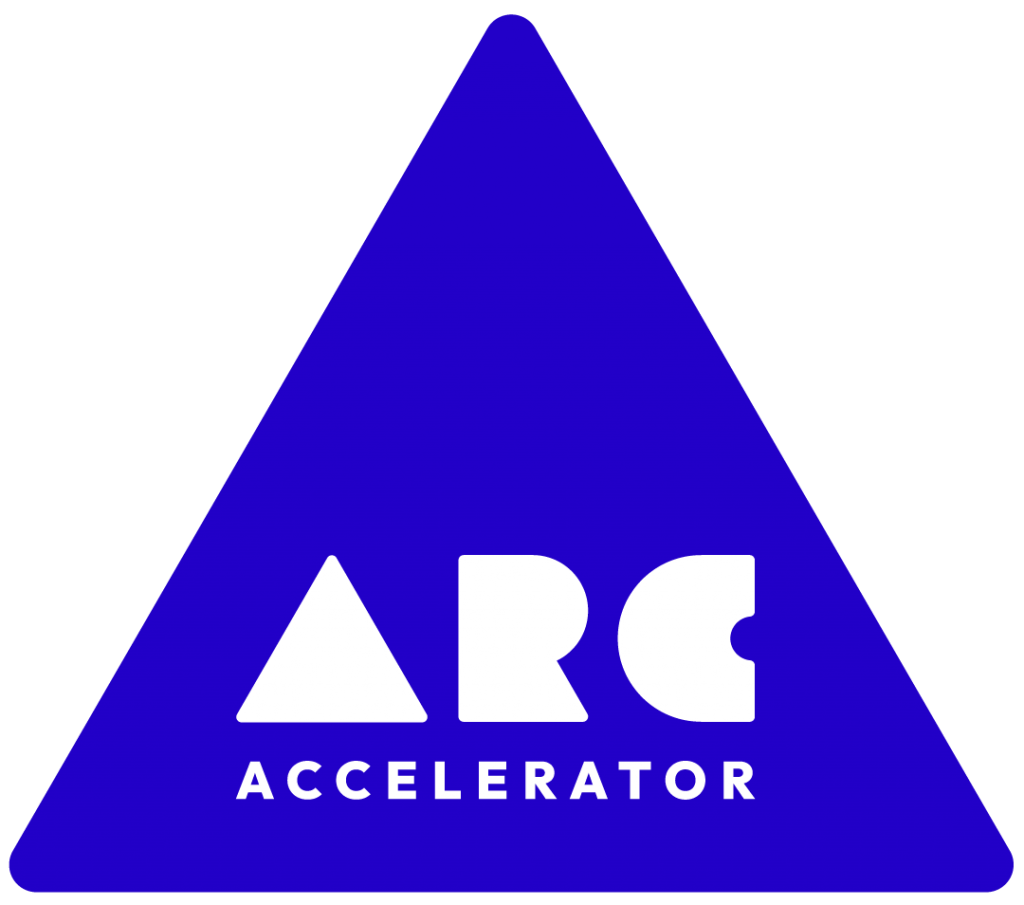What is the project doing?
This project sought to explore the possibilities of commercialising education programmes that emerged from an AHRC funded project, In Place of War (IPOW) at the University of Manchester. In doing so, this enabled IPOW’s education programmes to be offered for free for participants from disadvantaged backgrounds and in communities education setting in sites of conflict.
The initial analysis into the undergraduate market, discounted the feasibility of developing accredited BA modules of CASE. However, the market analysis identified the feasibility of executive leadership development programmes and music making CDP by adapting existing CASE resources.
The next phase of the project continued to refine the initial executive leadership programme concept and pricing strategy as well as review of how to adapt existing CASE materials.
The final output is an evaluation report on the findings of the initial phase. Members goit involved by sharing their insights or experiences into ethical models for commercial lifelong learning training.
Contact
Theresa O Bradaigh Bean, Head of Research and Education, In Place of War. teresa@inplaceofwar.net
What is the project doing?
ENT COP was a collaboration amongst members of the Aspect Entrepreneurship community of Practice to develop best-practice on how we can support to international graduate entrepreneurs (IGE) effectively (re: startup and innovator visa scheme); creating framework for measurement and tracking of economic impact from SHAPE international graduate entrepreneurs (IGEs); developing policy recommendations for the scheme.
How can members get involved?
This project was designed to involve and benefit the wider Aspect member network. We have presented the project idea at the Aspect Entrepreneurship CoP, and have also invited new members Kingston, Plymouth, Warwick and Southampton to participate in the project.
We will seek to engage a high number of institutions in the research phase, where we will seek to interview stakeholders in charge of the visa process (min 10), and distribute the tracker to all Aspect members. Due to the current lack of best practice exchange in this area, against increased uncertainty and a lack of official guidance, we are positive that we will find high engagement.
The findings from the project will be made available and disseminated to all members via the Aspect members Platform.
Contact
Dr Anlan Chen, Lecturer in Entrepreneurship and Innovation, Henley Business School, University of Reading
a.chen@henley.ac.uk
Prof Norbert Morawetz, Professor in Entrepreneurship and Digital Innovation / Programme Director UG Entrepreneurship, Henley Business School, University of Reading
n.morawetz@henley.ac.uk
Marion Anderson, Student and Graduate Enterprise Manager, University of Glasgow,
Marion.Anderson@glasgow.ac.uk

What was the project doing?
Aspect Angels was a first-of-its-kind network that built pathways from ideas and research through to commercialization via angel investment.
Working closely with the Aspect Research Commercialization (ARC) Accelerator and the newly launched SHAPE Catalyst, the purpose of the network was to encourage investment into SHAPE ventures that created positive social and environmental impact alongside financial returns.
Aspect Angels aimed to support and foster scale in innovative solutions that addressed pressing global challenges, such as climate change, poverty, inequality, and access to healthcare and education. They believed this was a crucial role in identifying and nurturing promising startups that had the potential to make a difference in the world.
Additionally, Aspect Angels provided strategic guidance and operational support to portfolio companies to help them scale and achieve their impact goals. This could include connecting them with networks and resources, advising on governance and management practices, and helping them measure and report on their impact.
What is the project doing?
As a result of the Phase 2 funding, the TIAH members developed a workable process, and an understanding of the the costs (in time and funding) required to deliver a comprehensive SHAPE commercialisation offer. Now that they had a stable model to take forward, phase 3 funding was used to underpin TIAH, specifically with a (0.4FTE) hub manager, and associated administrative support, to oversee the TIAH’s shared project pipeline and programme of activities for both SHAPE academics and professional services teams. Programme activities fell into 3 categories: Pipeline stimulation and consolidation; training, support and capacity building; resource consolidation.
Chris Hewson, Faculty Impact Manager, University of York
chris.hewson@york.ac.uk

Aspect Members: University of Reading (Henley Business School), Cardiff University, University of Glasgow, The University of Manchester, University of Sussex, University of York, University of Durham, University of Exeter, Queensland University of Technology, Australia, Teesside University.
What was the project doing?
This project aimed to explore how systems underpinning academic career progression could be better aligned to support meaningful engagement with E&I. It examined the current state of play with ASPECT partners in terms of recognition, reward, and workload allocation and co-created solutions. These were presented in a project report and position paper for senior stakeholders at network universities, as well as resources for ASPECT partners. In addition, the project developed recommendations for developing and implementing an enterprise pathway(s).
Why was this needed?
A perceived lack of engagement from academics had been identified as one of the foremost reasons for comparatively low levels of entrepreneurship and innovation (E&I) relating to commercialization in the social sciences (Aspect Learning Gain Report, 2021). This project aimed to address this issue through systemic change.
How could members get involved?
While the University of Reading and the University of Sussex led the work packages, the other named partners actively contributed, including direct participation, provision of feedback, and co-creating solutions. The project was designed to benefit all Aspect members and offered opportunities to participate in all work packages, which had consultation built in.
For further information, please contact Loran Hards (L.Hards@sussex.ac.uk).
Aspect member: University of Manchester.
What is the project doing?
Methods for Change Phase 2 draws on the existing collaborators from Phase 1, and the wider and expanded Aspect network partners.
The project’s first monitoring and evaluation survey conducted in summer of 2021 has shown that for 85% of people being involved with Methods for Change Phase 1 (Aspect contributors, academic and non-academic stakeholders) has ‘prompted them to think differently about their work and the role of social science methods’. Phase 2 looks set to continue the ambitious aim of realising the value of social science methodologies for creating change in society, and continue highlighting their importance, relevance and potential use beyond academic contexts for non-academic stakeholders from business, industry, government, and third sector organisations.
In this iteration, the project hopes to engage more strongly with critical and interpretive approaches to spatial, mixed methods, and quantitative methodologies. It will also more strongly engage with academics who are using social science research methods within interdisciplinary settings. Building on the success of Phase 1, the project will also look to explore non-traditional funding for social science methods driven projects (e.g., Innovate UK KPTs) and cooperative, social science consultancy projects across University of Manchester and other academic partners building partnerships, collaboration and non-academic impacts that will live beyond Phase 2 of the project.
Visit the Research Methods Library.
Why is this needed?
The social sciences offer many possibilities to deepening understandings of societal needs, environmental challenges, and wider political dynamics that can enhance the practices of customer, consumer and policy research within businesses, third sector organisations and government departments. The robust methodologies developed within the social sciences are often under-utilised by non-academic sectors and in interdisciplinary settings. Given the complexities of current national and global socio-ecological and socio-economic problems, there has never been a more important moment to mobilise the potential within social science methodologies with non-academic stakeholders to invoke transformative socio-ecological and political change.
How can members get involved?
The project will take place for 15 months from June 2022.
For further information on how to be involved please contact Dr Ali Browne (alison.browne@manchester.ac.uk).
Aspect Members: University of Oxford, University of Glasgow, University of Sussex, Cardiff University, University of Edinburgh.
What is the project doing?
The aim of the Innovation Fellowship Programme is to support academic-led culture change, helping researchers to see the benefits of, and supporting them to advocate for, commercialisation and business engagement among their SHAPE peers. This builds on and expands a pilot run in Oxford and Manchester (2020-21).
Fellows will be awarded £2-10k per annum each depending on their institution, current career stage and needs. In return, Fellows will lead a programme of activity to drive an inclusive, supportive culture of innovation among social sciences, arts and humanities researchers in their institution and beyond.
Together these Fellows will be expected to form a Community of Practice, sharing good practice. This network will be supported by network administrators who will help with logistic arrangements and support them to deliver joint activities, workshops and events.
Why is this needed?
Innovation is becoming an increasingly important component of research activity. We hope to create a step-change in innovation in the social science, arts and humanities, making it easier for researchers to engage in innovation and to make it a more valued part of research.
By investing in a broader cohort of Innovation Fellows across several HEIs we hope to combine forces to create more significant outputs, including sharing effective ways of capturing the hearts and minds of other researchers and advocating for innovation in SHAPE.
How can members get involved?
Learnings will also be shared via blogs, videos, and other resources.
Other members are welcome to contact us to find out more (sam.sneddon@socsci.ox.ac.uk).

Aspect member: University of Glasgow
What was the project doing?
This project focused on intrapreneurial placements and training. The placement aimed to adapt to the changing funding and career landscape that was ever-increasing the centrality of non-academic partnerships and business engagement. In Phase 2, the project focused tightly on academics across our Interdisciplinary Research Themes doing short-term placements with businesses.
Why was this needed?
Funders were increasingly requiring meaningful engagement with private sector partners and/or asking for demonstrable impact in the innovation ecosystem. Academics at all career stages needed training, experience, and relationships that allowed them to respond to the changes in funding and be competitive across the board. This program equipped academics with valuable training and experience to achieve these aims.
How could members get involved?
The project team was happy to share their experience of the student-focused program ran last year, as well as share information on what they were doing this year.
Please contact Paige McCaleb (paige.mccaleb@glasgow.ac.uk) for any further information.
Aspect members: University Of Glasgow, University of Bristol, University of Manchester, Nottingham Trent University
What was the project doing?
This project built networks among academics, professional services, and the private sector in the innovation of research-based games. It aimed to expand and scale the efforts of many social sciences academics who were creating games as part of KE and impact. The aim was to create and share good and sustainable practices that could be referred to when developing a game idea. At the moment, the project was working on the market validation of a law-based game from the University of Glasgow, collecting measurable data and verifying its possible developments.
Why was this needed?
This project aimed at reducing the gap between social science research and commercialization opportunities. Developing educational games could have played an important role in enhancing research impact and establishing good practices.
How could members get involved?
Members became involved in:
- Connecting among academics developing games;
- Receiving support to develop games;
- Participating in educational game trials;
- Getting in contact with the game industry;
- Exploring opportunities and measure the impact of translating research into games.

Aspect members: Oxford University, LSE, University of Bristol, University of Manchester, University of Glasgow.
What is the project doing?
Building on the success of ARC Phase 1, the ARC Accelerator Phase 2 is a six-month programme, which helps researchers and universities build SHAPE ventures. The programme is open to SHAPE researchers (students and alumni are not eligible) from Aspect network members.
Why is this needed?
- Universities have little to no experience creating SHAPE ventures and often try and follow STEM procedures which is a poor fit
- Social science, humanities and Arts need new routes to impact and ventures are a powerful new tool
- The world could probably do with a boost when it comes to: Improving – elections, education, carbon emissions, social care, healthcare…
How can members get involved?
ARC applications open in autumn of each year and the programme runs February – September.
To get involved members need to identify researchers who (1) wish to build a venture from their research (2) have research that can be commercialised.
Head to the ARC website to see details of the new cohort and other ARC news
For further information please contact Chris Fellingham (chris@arcaccelerator.io).




